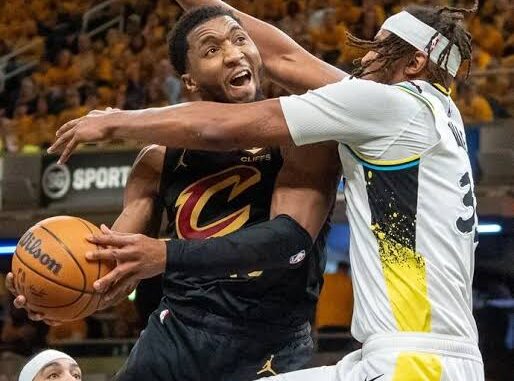
The NBA is facing mounting criticism following major decisions surrounding the potential return of LeBron James to the Cleveland Cavaliers. Once the franchise cornerstone who led the team to its historic 2016 championship, James’ name is again linked to his former team — but not without controversy.
The Major Decision: Cavaliers Reportedly Not Interested
Reports indicate that the Cavaliers’ front office is not in favor of reuniting with the four-time NBA champion. According to NBA insider Marc Stein, the organization is steering in a new direction, focused on developing its young core of Darius Garland, Evan Mobley, and Jarrett Allen. This stance reflects a strategic decision to prioritize long-term growth and identity over a sentimental or commercially-driven return of a legend.
This major decision has sparked backlash from fans and analysts alike. Critics argue that sidelining a player of James’ caliber, especially one with deep ties to the city, is short-sighted. Others, however, support the Cavaliers’ position, suggesting that James’ strong influence could overshadow team chemistry and hinder the development of younger talent.
League-Wide Backlash and Accusations
The NBA itself has not escaped criticism. Fans and analysts have accused the league of manipulating narratives around marquee players like James. Conspiracy theories were further fueled by recent draft controversies and perceived favoritism — including the Dallas Mavericks’ sudden acquisition of the top pick after trading Luka Dončić, which many saw as orchestrated.
The speculation around LeBron’s return is seen by some as another example of the league prioritizing star power and marketability over parity and authentic team development. Detractors believe that the NBA’s tacit support for such blockbuster moves undermines the credibility of its competitive structure.
LeBron’s Legacy and Fan Division
LeBron James’ legacy in Cleveland is as polarizing as it is storied. While many fans would welcome a final chapter in Cleveland, others recall his two high-profile exits — first to Miami in 2010 and again to Los Angeles in 2018. These departures left lasting scars for some fans, leading to a divided reaction regarding a possible third stint.
Moreover, James’ well-documented influence over team rosters and coaching decisions adds another layer of complexity. Some executives reportedly fear that his return could disrupt the current organizational culture, especially as the team seeks to establish a future not tethered to its past.
Conclusion
The backlash surrounding LeBron James’ potential return to the Cleveland Cavaliers highlights a deeper debate within the NBA — one that questions how much power stars should wield, and whether the league prioritizes legacy or growth. As the Cavaliers chart their future and LeBron’s career nears its twilight, the league’s handling of this saga will likely be remembered as a defining moment in how it balances history, loyalty, and long-term vision.